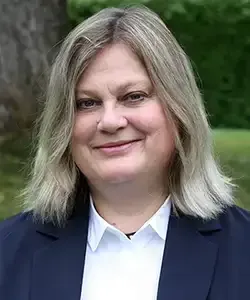Scholars at Risk: Providing Safe Havens
UiO receives 6 scholars yearly, who can continue their work here after being threatened or persecuted in their home of origin. All Norwegian Universities and several University Colleges in Norway are members and have hosted around 70 scholars since 2011. We have also had colleagues under this program at TF.
Documenting Threats to Academic Freedom
Both the international hub and the Norwegian brand are involved in documenting and reporting attacks at the academic freedom and autonomy of institutions where scholars work and students are enrolled. Scholars at Risk by its Freedom monitoring project publishes an annual report: Free to think, aiming at raising awareness in the communities of higher education and to encourage stakeholders, including state governments, to join the work.
Global Decline in Academic Freedom: The 2024 Report
The report for 2024 shares urgent concerns about attacks on academic freedom in various ways, and concludes that globally, the conditions for academic freedom is deteriorating. I will encourage you to spend some minutes to read the full report here: Free to Think 2024 | Scholars at Risk.
Responsibility to Uphold Human Rights in Academia
As researchers and teachers, as administrative staff working to secure and qualify education and research projects at UiO, we are part of a larger international community. Research and education are processes marked by critical thinking, open exchange of ideas, developing knowledge, access to information, freedom of movement and association. When these markers are under threat, or the personal security of researchers, teachers and students are compromised, when universities are physically attacked or demolished, this is a human rights violation according to the UN.
Impact on Norwegian and Regional Institutions
Research is both an individual and a collective activity, happening in specific contexts. The report Free to think 2024 shows how academic freedom is decreasing in several contexts around the word and documents specific events. What may be specifically important to notify is that this decrease is also happening in countries geographically close to Norway, like the UK, Germany, and France. The situation calls for broad solidarity, and for building resilience. There is a need to implement tools to protect academic freedom.
Developing Comprehensive Evaluation Tools
A connected issue is the responsibility to conduct both research and higher education within the frames of human rights. Norwegian universities are obliged to follow ethical guidelines within their activities, including teaching and research. A question which has been raised is whether we have the tools to evaluate our activities regarding this. There is a broad agreement in Norway at a general level that it is an obligation to secure research and teaching integrity so that human rights are promoted and not violated in these activities. The challenge often arises about the practice in concrete cases, and in order for this to have any meaning beyond mere symbolism, it needs to be concrete. The responsibility to secure the integrity of research and education goes beyond the individual teacher and researcher, it is a responsibility for the institution.
Innovative Models from European Universities
This is why the institution needs to develop specific tools to evaluate ongoing and planned work in this respect. Several European universities have already done this, such as the University of Amsterdam, Ghent University, and Erasmus University in Rotterdam. One of our keynote speakers at our Chaplaincy and Democracy conference earlier this year, Ruard Ganzevoort, is heading an Advisory Committee on Sensitive Collaboration (ACSC) at the Erasmus University. This committee has developed an assessment model continuously developing. The model consists of asking relevant questions, looking up sources and reflective weighing in a specific cooperation or partnership. The risk pillars focus on Human Rights, the University’s core values, knowledge security and integral safety. After ACSC has proceeded a case, they give advice on how to proceed where a substantial summary is made public. A presentation of ACSC’ work can be found here: Advisory Committee Sensitive Collaborations (ACSC) | Erasmus University Rotterdam.
Strengthening Ethical Practices in Norwegian Universities
Norwegian Universities, including the University of Oslo, would strengthen our quality of both research and education if we intensify our ongoing work with the Scholars at Risk-project, and develop tools for securing human rights-grounded practice in our work. Research, and increasingly higher education, is an international endeavor. We are woven into a larger web that includes wars, conflicts, human rights violations, deteriorating academic and political freedom.
